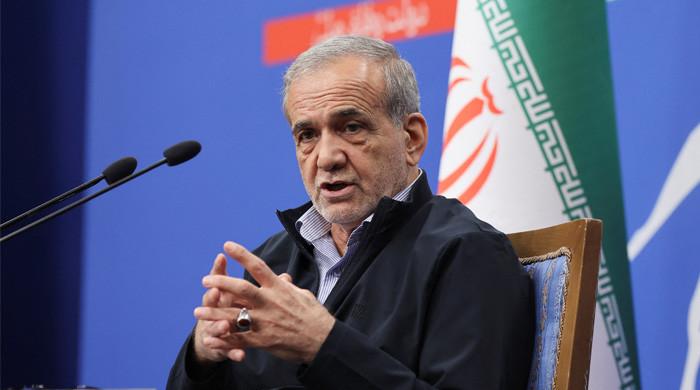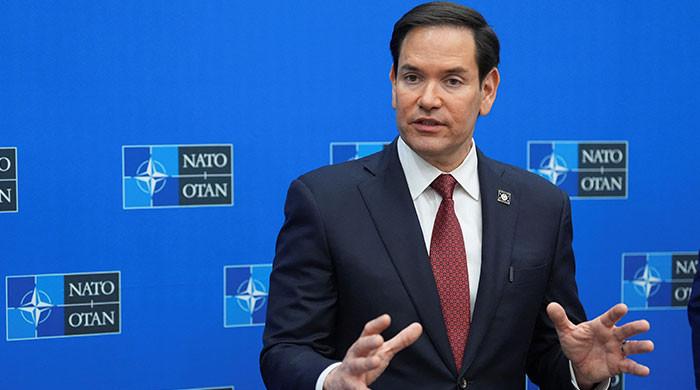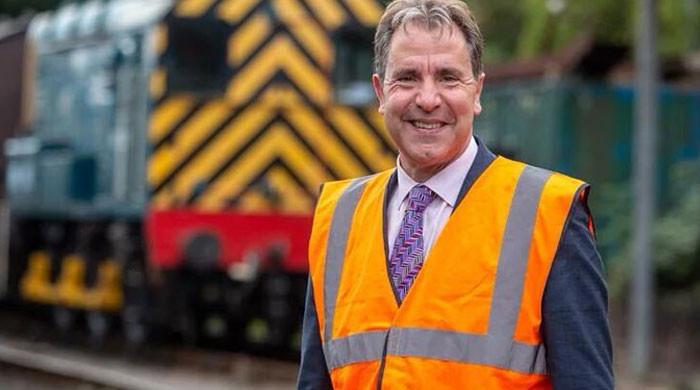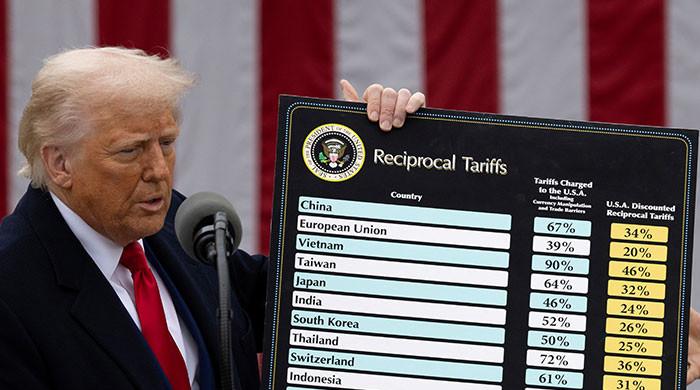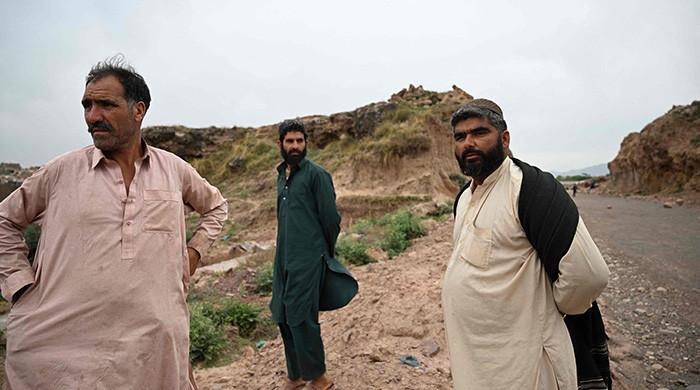Chinese hospitals, funeral homes 'extremely busy' as COVID spreads unchecked
In an abrupt change of policy, China this month began dismantling the world's strictest COVID regime of lockdowns
December 28, 2022
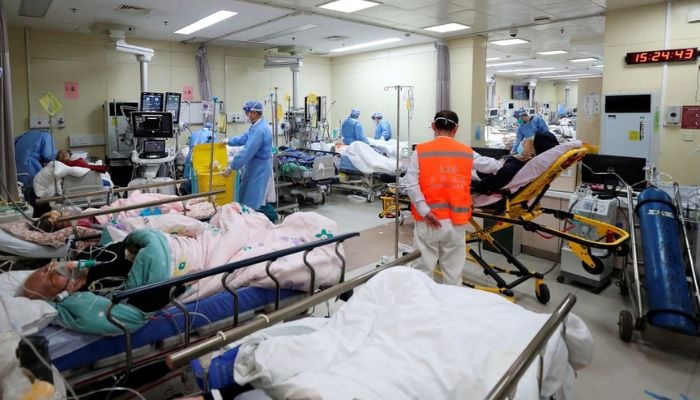
- Hospitals, funeral parlours report surge in COVID infections.
- China reports three new COVID deaths for Tuesday.
- Some countries consider travel rules for Chinese visitors.
CHENGDU: Chinese hospitals and funeral homes were under intense pressure on Wednesday as a surging COVID-19 wave drained resources, while the scale of the outbreak and doubts over official data prompted some countries to consider new travel rules on Chinese visitors.
In an abrupt change of policy, China this month began dismantling the world's strictest COVID regime of lockdowns and extensive testing, putting its battered economy on course for a complete re-opening next year.
The lifting of restrictions, which came after widespread protests against them, means COVID is spreading largely unchecked and likely infecting millions of people a day, according to some international health experts.
The speed at which China, the last major country in the world moving towards treating the virus as endemic, has scrapped COVID rules has left its fragile health system overwhelmed.
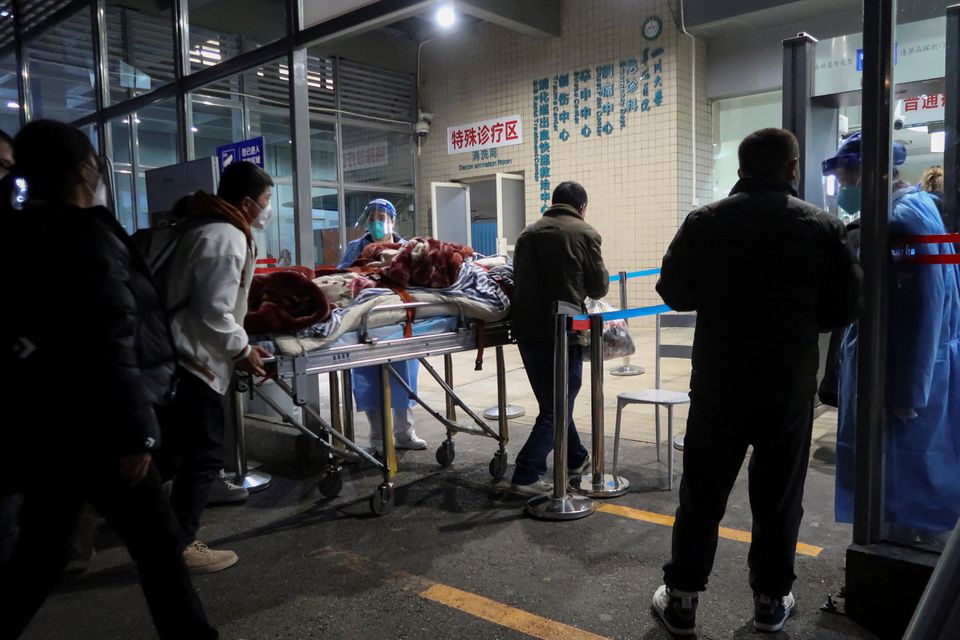
China reported three new COVID-related deaths for Tuesday, up from one for Monday — numbers that are inconsistent with what funeral parlours are reporting, as well as with the experience of much less populous countries after they re-opened.
Staff at Huaxi, a big hospital in the southwestern city of Chengdu, said they were "extremely busy" with COVID patients.
"I’ve been doing this job for 30 years and this is the busiest I have ever known it," said one ambulance driver outside the hospital who declined to be identified.
There were long queues inside and outside the hospital’s emergency department and at an adjacent fever clinic on Tuesday evening. Most of those arriving in ambulances were given oxygen to help with their breathing.
“Almost all of the patients have COVID,” one emergency department pharmacy staff member said.
The hospital has no stocks of COVID-specific medicine and can only provide drugs for symptoms such as coughing, she said.
Car parks around the Dongjiao funeral home, one of the biggest in Chengdu, were full. Funeral processions were constant as smoke billowed from the crematorium.
“We have to do this about 200 times a day now,” said one funeral worker. “We are so busy we don’t even have time to eat. This has been the case since the opening up. Before it was around 30-50 a day.”
"Many have died from COVID,” said another worker.
At another Chengdu crematorium, privately-owned Nanling, staff were equally busy.
“There have been so many deaths from COVID lately,” one worker said. “Cremation slots are all fully booked. You can’t get one until the new year.”
China has said it only counts deaths of COVID patients caused by pneumonia and respiratory failure as COVID-related.
Zhang Yuhua, an official at the Beijing Chaoyang Hospital, said most recent patients were elderly and critically ill with underlying diseases. She said the number of patients receiving emergency care had increased to 450-550 per day, from about 100 before, according to state media.
The China-Japan Friendship Hospital's fever clinic in Beijing was also "packed" with elderly patients, state media reported.
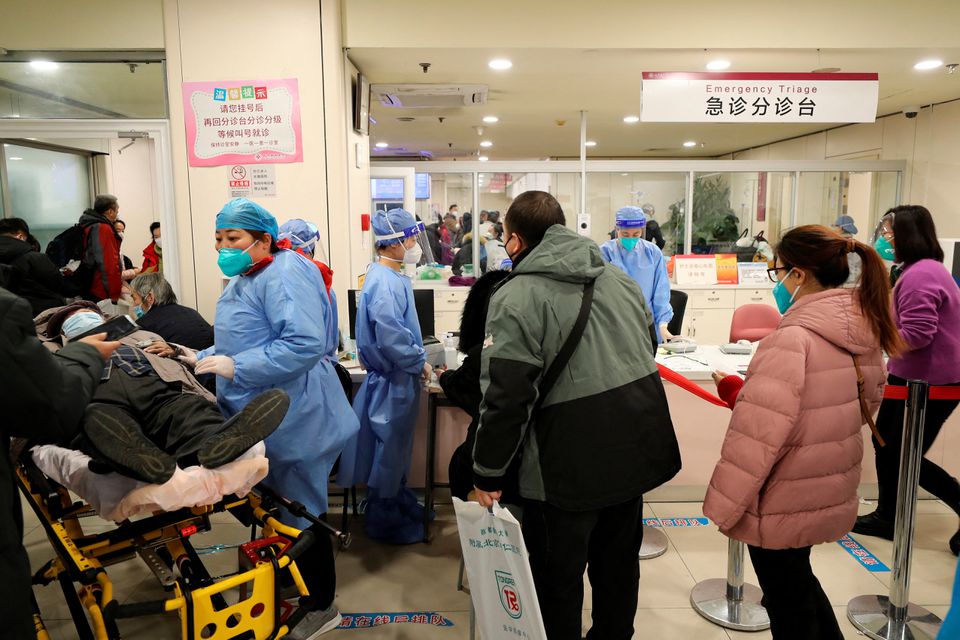
Nurses and doctors have been asked to work while sick and retired medical workers in rural communities have been rehired to help. Some cities have been struggling with drug shortages.
Travel rules
In a major step towards freer travel, China will stop requiring inbound travellers to go into quarantine from Jan. 8, authorities said this week.
The global financial hub of Hong Kong also said on Wednesday it would scrap most of its last remaining COVID restrictions.
Online searches for flights out of China spiked on Tuesday from extremely low levels, but residents and travel agencies suggested a return to anything like normal would take some months yet, as caution prevails for now.
Moreover, some governments were considering extra travel requirements for Chinese visitors.
US officials cited "the lack of transparent data" as reasons for doing so.
India, Taiwan and Japan would require a negative COVID test for travellers from mainland China, with those testing positive in Japan having to undergo a week in quarantine. Tokyo also plans to limit airlines increasing flights to China.
The Philippines was also considering imposing tests.
Economic pain
China's $17 trillion economy is expected to suffer a slowdown in factory output and domestic consumption as workers and shoppers fall ill.
News of re-opening borders sent global luxury stocks higher, but the reaction was more muted in other corners of the market.
US carmaker Tesla plans to run a reduced production schedule at its Shanghai plant in January, according to an internal schedule reviewed by Reuters. It did not specify a reason.
Once the initial shock of new infections passes, some economists expect Chinese growth to bounce back with a vengeance from what is this year expected to be its lowest rate in nearly half a century, somewhere around 3%.
Morgan Stanley economists expect 5.4% growth in 2023, while those at Goldman Sachs see 5.2%.




